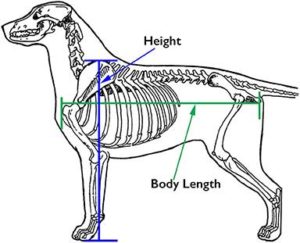Choosing the Right Dog Personality For Your Lifestyle
 Are you single, or do you have a big family? Do you have young children, other pets, or older kids? In addition to evaluating the members of your family, think about your physical home, too. Space is also a consideration, whether you have a home or apartment, a large fenced-in yard or a small plot of grass, a neighborhood that’s great for walking or have to commute to a dog park, all should factor into choosing a dog breed or size of dog.
Are you single, or do you have a big family? Do you have young children, other pets, or older kids? In addition to evaluating the members of your family, think about your physical home, too. Space is also a consideration, whether you have a home or apartment, a large fenced-in yard or a small plot of grass, a neighborhood that’s great for walking or have to commute to a dog park, all should factor into choosing a dog breed or size of dog.
These questions will help narrow down your search for a dog. For example, if you live in an apartment and don’t have easy access to a park or a place to go for walks, you’ll probably want to stick to a small dog that doesn’t require as much room to get exercise. If you have small children, you’ll likely want to avoid toy breeds, which can be fragile and nervous around very young children, and look instead for a larger breed with a reputation for liking little kids. And if you find yourself drawn to very large dogs, such as a Great Dane or St. Bernard, you’ll want to be sure you have enough house and yard to comfortably accommodate such a large dog.
Working Dog Structure: Evaluation and Relationship to Function
 Working dogs help to keep society and individuals safe, secure, and healthy. To perform their varied functions, it is critical to select dogs that are structurally sound and capable of demonstrating power, coordination and agility. Characteristics such as size and substance, head and axial skeletal structure, chest size and conformation, and thoracic and pelvic limb angulation should be evaluated to select the optimal combination of characteristics to suit the tasks to which each dog will be assigned. This review provides guidance on how to evaluate each of these structural components and discusses the contributions of those body parts to a working dog’s function.
Working dogs help to keep society and individuals safe, secure, and healthy. To perform their varied functions, it is critical to select dogs that are structurally sound and capable of demonstrating power, coordination and agility. Characteristics such as size and substance, head and axial skeletal structure, chest size and conformation, and thoracic and pelvic limb angulation should be evaluated to select the optimal combination of characteristics to suit the tasks to which each dog will be assigned. This review provides guidance on how to evaluate each of these structural components and discusses the contributions of those body parts to a working dog’s function.
A Field Guide to Ethical Breeders
 You are a conscientious and skeptical consumer. Whenever you have a choice, you buy quality products that are made to last, by manufacturers who take good care of their workers and the environment, who are mindful of safety, who stand behind their products, and generally follow the best practices to produce them sustainably and ethically. Since you invest more in each purchase, you also invest more in caring for that purchase, whether by maintaining a pricey handcrafted tool or carefully cooking that expensive local grass-fed steak. You know that by taking extra care, you not only meet high ethical standards, you get a better product for you. Who wants a bunch of shiny junk that will break and end up in a landfill, with the seller gone as soon as your payment clears? Not you.
You are a conscientious and skeptical consumer. Whenever you have a choice, you buy quality products that are made to last, by manufacturers who take good care of their workers and the environment, who are mindful of safety, who stand behind their products, and generally follow the best practices to produce them sustainably and ethically. Since you invest more in each purchase, you also invest more in caring for that purchase, whether by maintaining a pricey handcrafted tool or carefully cooking that expensive local grass-fed steak. You know that by taking extra care, you not only meet high ethical standards, you get a better product for you. Who wants a bunch of shiny junk that will break and end up in a landfill, with the seller gone as soon as your payment clears? Not you.
You also know that there are costs to being conscientious. You will pay more up-front, sometimes a lot more. You have to put in a lot more effort to get the product; it isn’t waiting for you on the shelf at Walmart 24 hours a day. You have to research and weigh values against one another. You may have to wait a long time to get just the product you want. And you must hone your radar for advertising claims that mean nothing (cholesterol-free apples?) and scrutinize various allegedly independent seals of approval that serve as marketing smokescreens for sellers who want to exploit your conscientiousness.
Here’s a challenge, though: Can you apply that smart, honed, skeptical consumer consciousness to the next dog or puppy that you buy or adopt? Can you resist the first adorable puppy that is plopped into your arms, or the desperate sad story on a Petfinder entry?


Not only can it be done, it must be done, if you are deeply involved with your own dogs and care a great deal about the welfare and future of dogs in general. This is the acquisition that most demands a restrained, educated, skeptical approach that serves your own self-interest as well as supporting practices that are good for dogs. For no other purchase does intelligent self-interest mesh so closely with good social ethics, whether you are buying a purpose-bred puppy or selecting the best-for-you “used” dog from a shelter or rescue.
Here’s how to identify an ethical breeder – one whose concern for the welfare of her dogs and devotion to the future of her breed extends to the well-being of those dogs’ owners. Next month, we’ll describe how to identify legitimate, top-quality rescues, and avoid those that apply more sentiment than expertise, as well as frank swindlers who prey on animals and kind-hearted people.
